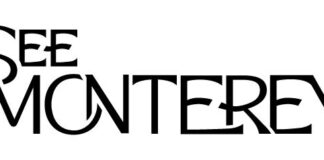SAN FRANCISCO, Nov. 2, 2015 /PRNewswire-HISPANIC PR WIRE/ — One in four Americans age 65 or older has diabetes, putting them at increased risk for vision loss and blindness. Fortunately, diabetes-related vision loss is largely preventable with regular care. Yet, studies have found a majority of Medicare beneficiaries with diabetes do not get the necessary eye exams.[1] The American Academy of Ophthalmology is recognizing November as Diabetic Eye Disease Awareness Month and reminding older Americans that if they have diabetes, Medicare will cover these critical eye exams each year.
Photo – http://photos.prnewswire.com/prnh/20151030/282484
Logo – http://photos.prnewswire.com/prnh/20130405/MM89329LOGO
Both type 1 and type 2 diabetes can affect the small blood vessels in the eyes, causing them to leak and grow irregularly. This leads to vision loss if left untreated. This condition is known as diabetic retinopathy and affects about 30 percent of people living with diabetes. It can also lead to other blinding ocular complications, such as diabetic macular edema. In this disease, the macula – the part of the eye responsible for detailed vision – swells, damaging vision and leading to blindness. Risk for these complications increases with age and duration of diabetes.
To prevent diabetes-related vision loss, the Academy recommends people with diabetes get a dilated eye exam each year. Getting these exams can help prevent 95 percent of diabetes-related vision loss. The exams are typically performed by ophthalmologists – physicians that specialize in medical and surgical eye care – and are covered by Medicare. Because Medicare plans vary, people with diabetes should talk with their doctor to determine the best process for setting up an eye exam. Those with Medicare Advantage may have different benefits from those with only Medicare Part B, which is traditional Medicare.
Eye exams for people with diabetes are similar to comprehensive eye exams. They include putting dilating drops into the eyes to help the pupil expand. This allows the ophthalmologist to see the retina – the light-sensitive tissue lining the back of the eye – and look for early signs of diabetic retinopathy. Cameras may also be used to record any disease progression. These cameras combine a microscope with a camera to get close-up images of the retina.
These eye exams allow early detection, monitoring and treatment of diabetic eye disease. This can prevent unnecessary vision loss, enabling people with diabetes to live full and productive lives. Dilated eye exams also allow the ophthalmologist to check for conditions such as glaucoma and cataracts, for which people with diabetes are at an increased risk.
“Annual eye exams are critical for anyone living with diabetes,” said Purnima Patel, M.D., a clinical spokesperson for the American Academy of Ophthalmology and a retina specialist and assistant professor of ophthalmology at Emory University School of Medicine. “Older Americans may be unaware that Medicare covers these exams for people with diabetes. Skipping these exams, for whatever reason, can put them at risk for a future in the dark.”
Traditional Medicare covers 80 percent of the cost of eye exams for people with diabetes. The remaining 20 percent is typically paid for by the patient. If this cost is a concern, EyeCare America may be able to help. This is a public service program of the Foundation of the American Academy of Ophthalmology. It can help older Americans get a comprehensive eye exam and up to one year of care at no out-of-pocket cost. Learn more, or see if you or your loved one qualifies at www.eyecareamerica.org.
About the American Academy of Ophthalmology
The American Academy of Ophthalmology, headquartered in San Francisco, is the world’s largest association of eye physicians and surgeons, serving more than 32,000 members worldwide. The Academy’s mission is to advance the lifelong learning and professional interests of ophthalmologists to ensure that the public can obtain the best possible eye care. For more information, visit www.aao.org.
The Academy is also a leading provider of eye care information to the public. The Academy’s EyeSmart® program educates the public about the importance of eye health and empowers them to preserve healthy vision. EyeSmart provides the most trusted and medically accurate information about eye diseases, conditions and injuries. OjosSanos™ is the Spanish-language version of the program. Visit www.geteyesmart.org or www.ojossanos.org to learn more.
About EyeCare America
Established in 1985, EyeCare America, a public service program of the Foundation of the American Academy of Ophthalmology, is committed to the preservation of sight, accomplishing its mission through public service and education. EyeCare America provides year-round eye care services to medically underserved seniors and those at increased risk for eye disease. More than 90 percent of the care made available is provided at no out-of-pocket cost to the patients. EyeCare America is co-sponsored by the Knights Templar Eye Foundation Inc., with additional support provided by Genentech and Regeneron. More information can be found at www.eyecareamerica.org.
[1] http://www.aaojournal.org/article/S0161-6420(14)00624-1/fulltext







